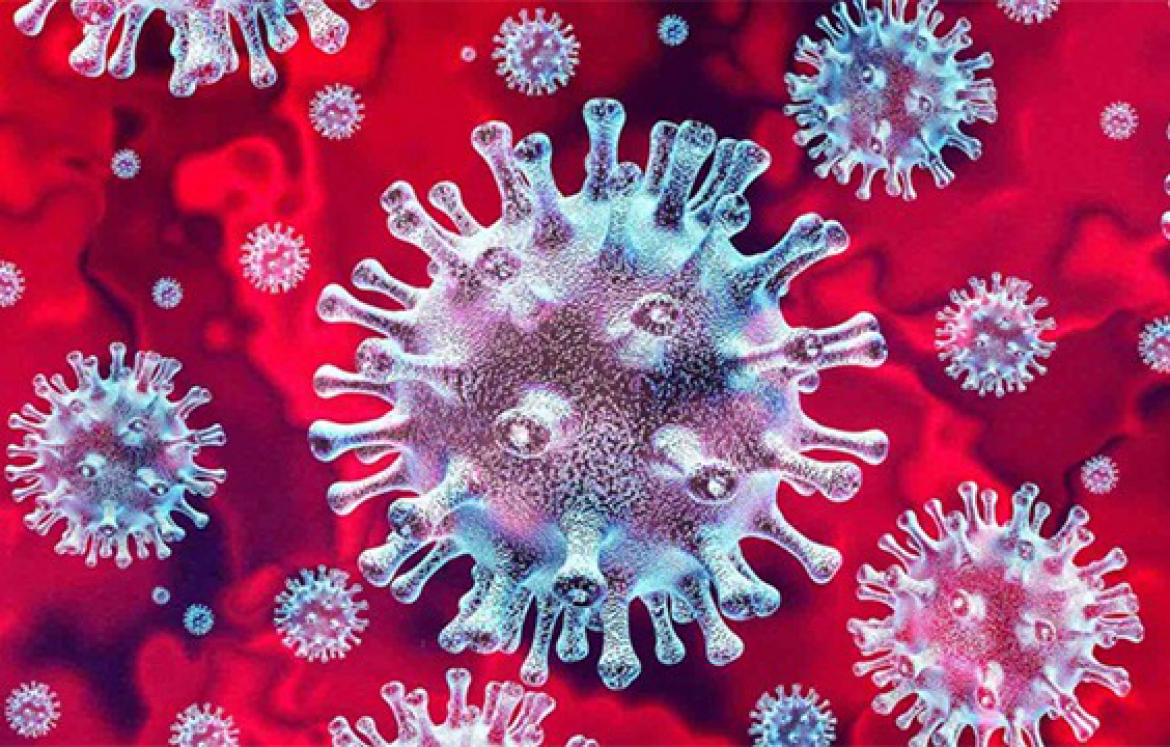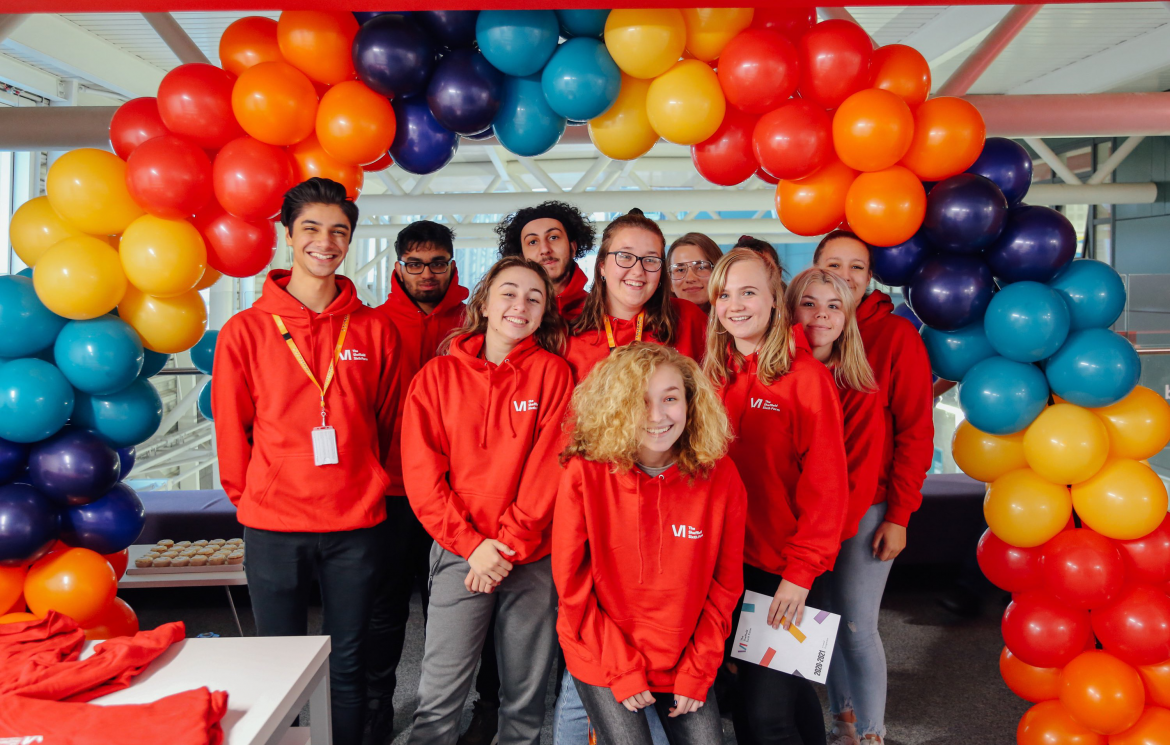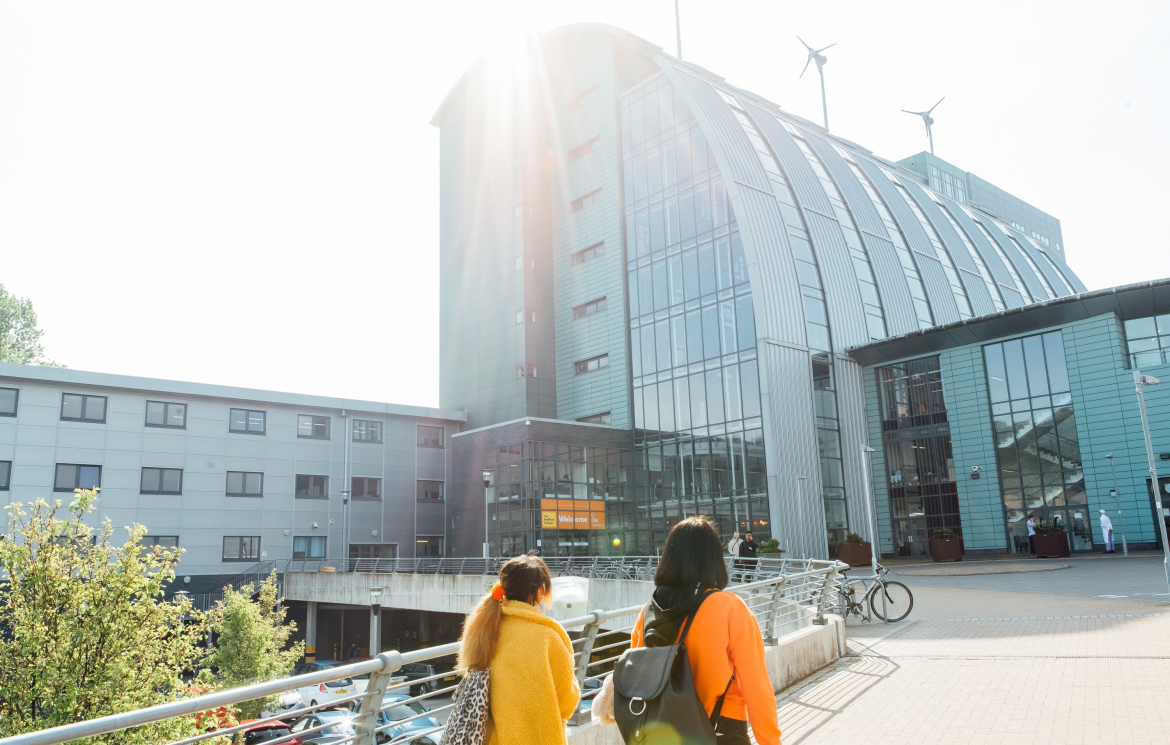
Updated: August 18th, 2021.
Our frequently asked questions page provides information about the College’s latest safety measures to help keep students and staff Covid-19 secure.
Please keep checking this page, which will be reviewed and updated in line with public health guidance.
1. What is Coronavirus and what are the symptoms?
Coronavirus (Covid-19) is a new virus that has not been seen in humans before.
Most people with coronavirus have at least one of the following symptoms:
- New, continuous cough
- Fever, a high temperature of 37.8°C or above
- Loss or change to smell or taste.
It's vital that we all continue to work together to help stop the spread of coronavirus both on and off campus.
If you develop suspected symptoms, please do not attend college. You should stay at home, self isolate immediately and get a free polymerase chain reaction (PCR) test as soon as possible.
You can order a test online, on the NHS Covid-19 app or by phoning 119. For details, visit https://www.gov.uk/get-coronavirus-test. Please also report any symptoms of coronavirus to the College at the earliest opportunity.
It is also vital to keep testing twice weekly, using the free lateral flow tests, to help detect asymptomatic cases and prevent the spread of the virus. Please see more information under question 7.
2. Have there been any confirmed Covid-19 cases at the College?
- From September 14th, 2020 until August 12th, 2021, 257 students have tested positive for Covid-19.
- From September 14th, 2020 until August 12th, 2021, 78 staff have tested positive for Covid-19.
We are continuing to monitor the situation. Not all of those affected had been on-site at the College. We have been working closely with Public Health England, and have taken all the necessary actions. The College has more than 14,000 students a year and approximately 1,320 staff.
3. How do I protect myself and help stop the transmission of the virus?
Please stay safe and follow public health guidance. Please make sure that you are familiar with the latest restrictions and guidelines so that we can continue to keep our college and wider communities safe.
Although restrictions have eased, it is still important that we all continue to follow the latest guidelines to help keep everyone safe. For more details, please check the latest government advice - https://www.gov.uk/coronavirus.
The key things to remember are:
- Get vaccinated if you are 18 or over.
- Meet up outside or if you’re indoors open windows or doors if you have visitors.
- If you think you might have Covid-19 symptoms, take a PCR test and stay home.
- Wear face coverings in crowded places to help protect others.
- Check-in with the NHS Covid-19 app when you’re out.
- Wash your hands regularly and for at least 20 seconds with soap.
- Use hand sanitiser gel if soap and water are not available.
- Cover your mouth and nose with a tissue or your sleeve when you cough or sneeze.
- Put used tissues in the bin straight away and wash your hands afterwards.
- Try to avoid close contact with people who are unwell.
- Don’t touch your eyes, nose or mouth if your hands are not clean.
4. Is the College open?
Although the College is open, students should only turn up on campus if they have received an email inviting them to do so. If you are unsure about whether you should be in college, please contact and check with your tutors.
We are currently reviewing our plans for students and staff returning to campus from September 2021 onwards following the government's easing of coronavirus restrictions on July 19th, 2021. We will update you on that when we have more details.
In the meantime, we are continuing with our current approach until the end of this August 2021 which means we will continue to ask that you follow social distancing measures while on campus and wear face coverings in social and learning spaces unless exempt.
5. Do I need to wear a face covering at the College?
Whilst the latest government guidance recommends that we can stop using face coverings, we have decided to politely request that students continue to wear them when on campus in learning spaces and communal areas.
We have taken this decision as Public Health England has advised that the Delta variant is highly transmissible. When you are on campus, please remember to:
- Wear face coverings in all communal areas and learning spaces unless you are exempt.
- Social distance.
- Wash your hands regularly.
6. Do students need to take Covid-19 tests?
We are encouraging all students coming onto campus to take part in lateral flow device testing. It is vital to continue home testing twice weekly to help detect asymptomatic cases and prevent the spread of the virus.
As per government guidance, testing is not mandatory. However, any students who choose to opt-out of the testing process but still come back onto campus are declaring that they are not showing any symptoms of Covid-19 and should not be self-isolating for any reason.
Every step is being taken to ensure that the College remains a safe place to work and learn. We are continuing to implement social distancing measures, support home testing and limit campus occupancy in line with our ongoing risk assessment.
Since the start of the pandemic, we've conducted a full Covid-19 risk assessment and safety measures have been put in place as a result. Our decisions put student and staff safety at the heart of them, alongside making sure students receive the very best learning experience possible.
7. How is the College helping students with home testing kits?
Students can collect home testing kits free of charge from one of our campuses:
• City Campus - Sports Hall
• Hillsborough Campus - Reception
• Peaks Campus - Reception
• Olive Grove Campus - Reception
• Fir Vale Campus - Reception
• Eyre Street Campus - Reception
Alternatively, you can order a lateral flow test to your home through the government website.
You should take two tests per week, with no longer than three to four days between your last test. It is vital to keep testing twice weekly to help detect asymptomatic cases and prevent the spread of the virus. For more guidance on testing at home, please visit the government website.
8. What happens if I have a confirmed positive Covid-19 test?
All positive results from rapid lateral flow tests need to be confirmed with a polymerase chain reaction (PCR) test within two days of the positive lateral flow test. A PCR is a test that is sent to a laboratory to determine the result.
Please self-isolate immediately. If you test positive, your self-isolation period includes the day your symptoms started (or the day you had the test, if you do not have symptoms) and the next 10 full days. Anyone you live with will also need to self-isolate at the same time.
You may need to self-isolate for longer if you get symptoms while self-isolating or your symptoms do not go away. For more details, please read this NHS guidance on self isolation.
All students and their households should report any positive test results by calling 119 or through this online form. Students should also inform the College.
- Following a positive test, a confirmatory PCR test should be booked online here or by calling 119.
- If your PCR test result is negative, you do not need to continue to isolate.
For more information, please visit the latest government Coronavirus (COVID-10) asymptomatic testing in schools and colleges guidance.
The government has also provided information about testing in its Households and bubbles of pupils, students and staff of schools, nurseries and colleges: get rapid lateral flow tests guidance.
9. How long will I need to self isolate for?
Self-isolation rules have changed following new government guidance on August 16th 2021. You will not need to self isolate in certain situations. Please read on to find out more.
10. When should I self-isolate?
Self-isolate straight away and get a PCR test as soon as possible if you have any of the following three symptoms of Covid-19, even if they are mild:
- A high temperature
- A new continuous cough
- A loss or change to your sense of smell or taste
You will also need to self-isolate if:
- You've tested positive for Covid-19.
- You're an unvaccinated adult (someone aged over 18 years and 6 months) who is identified as a close contact of someone who has tested positive for Covid-19.
- Someone you live with has symptoms or has tested positive - unless you are not required to self isolate. Please see more details below.
11. When do I not need to self isolate?
If you live with someone who has symptoms of Covid-19 or you are a close contact of someone who has tested positive for the virus, you will not need to self-isolate if any of the following apply to you:
- You're fully vaccinated - and 14 days have passed since your final dose of a Covid-19 vaccine given by the NHS
- You're under the age of 18 years and 6 months old
- You're not able to get vaccinated for medical reasons
- You're taking part or have taken part in a Covid-19 vaccine trial
Even if you do not have symptoms, you should still:
- Get a PCR test to check if you have Covid-19
- Follow advice on how to avoid catching and spreading the virus
- Consider limiting contact with people who are at higher risk from the virus
Those identified as a close contact will still be informed by NHS Test and Trace that they have been in close contact with a positive case ad advised to take a PCR test.
It's important to book a PCR test as soon as possible and if the result of that is negative you don’t need to isolate for 10 days.
12. Are the College nurseries open?
The College’s Hillsborough Nursery at Hillsborough Campus and City Nursery at City Campus are open.
13. Who can students turn to if they are struggling with their mental health?
If you are struggling with your mental health, please contact staff or email safeguarding@sheffcol.ac.uk.
14. How do I find out more about the NHS Test and Trace Covid-19 app?
The free NHS Test and Trace Covid-19 app will help you see if you’re at risk from coronavirus.
The app has a number of tools including contact tracing, local area alerts and venue check-in, and uses technology from Apple and Google. If your postcode district becomes high risk, the app will let you know.
If you come into close contact with another user who reports a positive test result, the app will send you an anonymous alert. It also provides a symptom check and information on booking a coronavirus test.
For more information on how to download the app, as well as data protection and privacy, please visit the NHS website.
15. Where can I get more help?
- Use the NHS 111 online service if symptoms become difficult to cope with, get worse or do not go after seven days.
- The NHS 111 telephone service is available for people who are not online. Only call 111 if you cannot get help via the online service.
- If you have difficulties with communicating or hearing, please call 18001 111 on a textphone or use the NHS 111 British Sign Language interpreter service.
- In an emergency (a life-threatening) situation, dial 999.
16. Does the College have a track and trace procedure in place?
Yes. The Sheffield College Covid-19 Track and Trace Policy provides guidance for our staff so they know how to support anyone exhibiting symptoms whilst at the College and take the necessary steps to contact anyone who has come into contact with the person affected on campus.
17. Who should I tell if I have coronavirus symptoms?
- Students should report symptoms by calling the College’s customer services team on 0114 2602600. They will let your tutor and the Health and Safety Manager know.
- Once you have had a coronavirus test, please contact your tutor to let them know the result. When you are well, and no longer have symptoms, please let your tutor that you are returning to College to study.
- Parents and carers of nursery children should inform the nursery of their child’s sickness and coronavirus test results and when their child is well, no longer has symptoms and are returning to nursery.
- Any contractors and visitors, who develop symptoms and have been on our premises during the seven days prior to that, must report this to the College by calling 0114 2602600.
18. What safety measures are in place for students and staff at the College?
We are doing everything we can to support you and your future career ambitions whilst keeping you, our staff and the wider community safe. Since the start of the pandemic, we've conducted a full Covid-19 risk assessment and safety measures have been put in place as a result.
Every step has been taken to ensure that when students are able to attend college for campus classes, they can do safely based on a thorough and ongoing Covid-19 risk assessment.
The safety measures include cleaning, handwashing, hygiene and social distancing procedures. Where students and staff cannot be two metres apart, we have done everything practical to reduce the possibility of transmission. Please see more details below:
- Timetables have been planned to ensure that students are on campus for the necessary time only.
- Students have been given an allocated zone and have been expected to leave college immediately after their classes.
- These steps have meant that we could manage the number of learners on-site at any point in the day and avoid large gatherings outside of classrooms, for example, by the lift areas and in the refectories.
- Campuses have marked specific entry and exit points. One-way systems have been introduced, marked with signs.
- Face coverings have been worn in learning and communal areas (except for people who are exempt from wearing them).
- Students and staff coming onto campus have been encouraged to take part in our lateral flow testing.
- We opened on-campus testing facilities and students have been supplied with home testing kits.
- Classrooms have been opened in advance to avoid unnecessary queuing or gathering.
- Hand sanitiser dispensers are in receptions, classrooms and refectory areas.
- Communal areas and classrooms have been cleaned before each teaching session and regularly throughout the day.
- Floors and surfaces are regularly cleaned, and bins emptied. In classrooms, specialist wipes are available to clean IT equipment.
- Lifts are restricted to one person at a time. Priority is given to those who have limited mobility.
- Students are encouraged to use the stairs, where possible.
- Toilets are restricted to one person at a time.
We are continuing to assess the situation and review our plans and safety steps, according to the latest government guidance.
19. How has teaching and learning been delivered during the last academic year - 2020/21?
Every step has been taken to ensure that our campuses are as safe as possible, based on a thorough college-wide risk assessment. Consequently, things have been different during the last academic year 2020/21.
Since September 2020 onwards, to help keep everyone safe, there were fewer face-to-face and more online learning sessions in addition to independent study, including virtual learning.
Our programmes had some lessons on college campuses, to ensure that students met their teachers and the other students in their group and to help them feel part of our vibrant college community.
During the first term, from September to December 2020, the majority of our programmes were based on blended learning to ensure that we provided a safe environment. This meant that - with the exception of the national lockdown when we moved fully online and remotely - our teaching has been a combination of three approaches:
- Face-to-face lessons on campus
- Face-to-face lessons delivered remotely, for example, using a video chat function
- Self-directed, independent study and learning
The balance depended on the subject studied. For example, programmes with a higher level of technical skills such a construction trade, dentistry, hair and beauty, and performing arts, required more face-to-face learning sessions to develop those skills.
Programmes of study that are more knowledge-based, such as A Levels, had more face-to-face online learning sessions and independent study.
We continued to assess the situation and reviewed our plans and safety steps, according to the latest government guidance.
20. I am having problems accessing financial support - what should I do?
If you are eligible for financial support from the College and have any questions or concerns about accessing that, then please email financial-support@sheffcol.ac.uk.
21. I have a safeguarding concern - what should I do?
If you have a safeguarding concern, please email safeguarding@sheffcol.ac.uk immediately.
22. Where can I get more mental health information and support?
- Kooth.
- Mind.
- Samaritans.
- Sheffield Mental Health Service.
- Young Minds.
- Uniheads. Students and apprentices should follow the joining instructions sent to your college email account on May 18th 2020.
23. Where can I find more general information?
Department for Education Coronavirus Helpline: Telephone 0800 046 8687. Email: DfE.coronavirushelpline@education.gov.uk
The helpline is for students, staff, and parents and carers, who have questions about Covid-19 relating to education.

